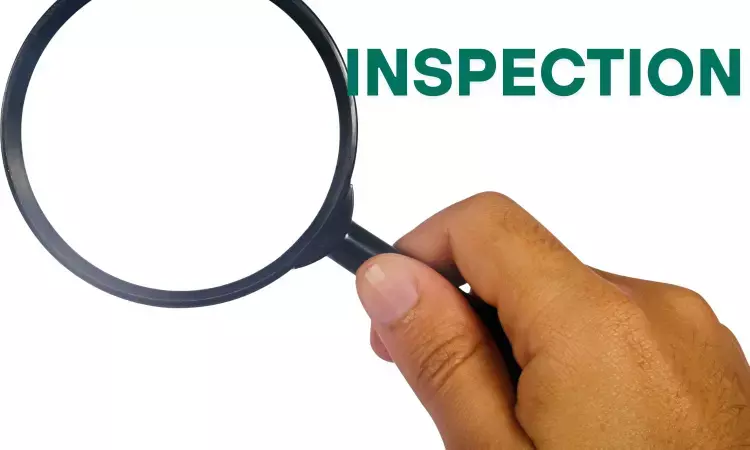- Home
- Medical news & Guidelines
- Anesthesiology
- Cardiology and CTVS
- Critical Care
- Dentistry
- Dermatology
- Diabetes and Endocrinology
- ENT
- Gastroenterology
- Medicine
- Nephrology
- Neurology
- Obstretics-Gynaecology
- Oncology
- Ophthalmology
- Orthopaedics
- Pediatrics-Neonatology
- Psychiatry
- Pulmonology
- Radiology
- Surgery
- Urology
- Laboratory Medicine
- Diet
- Nursing
- Paramedical
- Physiotherapy
- Health news
- Fact Check
- Bone Health Fact Check
- Brain Health Fact Check
- Cancer Related Fact Check
- Child Care Fact Check
- Dental and oral health fact check
- Diabetes and metabolic health fact check
- Diet and Nutrition Fact Check
- Eye and ENT Care Fact Check
- Fitness fact check
- Gut health fact check
- Heart health fact check
- Kidney health fact check
- Medical education fact check
- Men's health fact check
- Respiratory fact check
- Skin and hair care fact check
- Vaccine and Immunization fact check
- Women's health fact check
- AYUSH
- State News
- Andaman and Nicobar Islands
- Andhra Pradesh
- Arunachal Pradesh
- Assam
- Bihar
- Chandigarh
- Chattisgarh
- Dadra and Nagar Haveli
- Daman and Diu
- Delhi
- Goa
- Gujarat
- Haryana
- Himachal Pradesh
- Jammu & Kashmir
- Jharkhand
- Karnataka
- Kerala
- Ladakh
- Lakshadweep
- Madhya Pradesh
- Maharashtra
- Manipur
- Meghalaya
- Mizoram
- Nagaland
- Odisha
- Puducherry
- Punjab
- Rajasthan
- Sikkim
- Tamil Nadu
- Telangana
- Tripura
- Uttar Pradesh
- Uttrakhand
- West Bengal
- Medical Education
- Industry
AIOCD Opposes Karnataka's Third-Party Pharmacy Inspection Plan, Warns of Legal, Data Risks

Inspection
New Delhi: Raising a deep concern regarding the proposal for third-party inspections in pharmacies through agencies such as the Quality Council of India (QCI), as reported in various media outlets, the All India Organization of Chemists and Druggists (AIOCD) has written to the Health Minister of the Government of Karnataka, urging them to withdraw or put on hold the proposal of third-party inspections until proper legislative amendments, if any, are discussed at the national level and passed in accordance with due process.
Opposing strongly the decision of the Government of Karnataka, the AIOCD claimed that this proposed move is not in accordance with the existing Drugs and Cosmetics Act, 1940 and the Drugs Rules, 1945, which clearly stipulate that only designated Drug Inspectors appointed under the Act have the legal authority to inspect, verify, and take necessary regulatory actions at licensed chemist shops.
"Any delegation of these statutory powers to third-party entities not recognized under the Act would be legally invalid and ultra vires of the law." it added.
Furthermore, it added, "While we understand and appreciate the government’s intent to improve compliance and curb the menace of spurious and expired medicines, we strongly oppose any attempt to bypass or dilute the statutory framework laid down by Parliament. The Drug Inspector’s role is well-defined, and any inspection or regulatory action must be conducted only by officers appointed under the Act, who are duly trained and accountable to the licensing authority."
Allowing private or third-party agencies to inspect retail chemist outlets has drawn criticism from the AIOCD, which said:
• Legal sanctity of such inspections and any action taken based on them.• Breach of confidentiality and misuse of sensitive business and patient data.• Lack of uniform accountability and potential for arbitrary or commercially influenced evaluations
In addition to the aforementioned, the AIOCD claimed that implementing this policy, even on a pilot basis, without prior amending the Drugs Rules is premature and could lead to needless confusion and harassment among licensed pharmacists who are operating in complete compliance with the law.
Consequently, the AIOCD recommended the following:
1. Withdraw or put on hold the proposal of third-party inspections until proper legislative amendments, if any, are discussed at the national level and passed in accordance with due process.
2. Strengthen the existing drug regulatory infrastructure, including recruitment of more Drug Inspectors and provision of adequate support to them.
3. Consult and involve all stakeholders, including pharmacy trade bodies and associations, before implementing any such policy with far-reaching consequences.
The AIOCD concluded by urging immediate intervention and reaffirming its commitment to the government's intention of ensuring the supply of safe and high-quality medications, but stressing that these initiatives must always remain within the framework of the law and uphold the rights of legitimate traders and professionals in the sector.
Mpharm (Pharmacology)
Susmita Roy, B pharm, M pharm Pharmacology, graduated from Gurunanak Institute of Pharmaceutical Science and Technology with a bachelor's degree in Pharmacy. She is currently working as an assistant professor at Haldia Institute of Pharmacy in West Bengal. She has been part of Medical Dialogues since March 2021.


